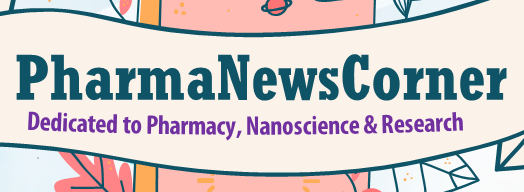Artificial Intelligence in Pharmaceutical Science: A Future Perspective
The integration of artificial intelligence (AI) in pharmaceutical science holds immense promise for revolutionizing drug discovery, development, and various aspects of healthcare.
Here's a future
perspective on how AI could transform pharmaceutical science:
- Drug Discovery and Design: AI algorithms can significantly expedite
the drug discovery process by analyzing vast datasets to identify
potential drug candidates. Machine learning models can predict the
biological activity, pharmacokinetics, and toxicity of compounds, thus
helping researchers prioritize molecules with the highest likelihood of
success. Additionally, AI-driven molecular design tools can assist in
creating novel drug candidates with optimized properties.
- Precision Medicine: AI enables the analysis of large-scale
genomic and clinical datasets to identify biomarkers associated with
disease susceptibility, progression, and response to treatment. By
leveraging this information, pharmaceutical companies can develop
personalized therapies tailored to individual patients' genetic makeup and
health profiles, leading to more effective and safer treatments.
- Clinical Trials Optimization: AI algorithms can optimize clinical trial
design by identifying suitable patient populations, predicting patient
recruitment rates, and optimizing trial protocols. This can reduce the
time and cost associated with clinical development while ensuring trials
are conducted efficiently and ethically.
- Drug Repurposing: AI can accelerate drug repurposing
efforts by analyzing existing drugs and their known pharmacological
properties to identify new therapeutic indications. By repurposing
existing drugs for new uses, pharmaceutical companies can reduce
development costs and expedite the delivery of treatments to patients.
- Drug Safety and Adverse Event Monitoring: AI-powered algorithms can analyze
real-world data, including electronic health records and social media, to
monitor drug safety and identify adverse events more effectively. This
proactive approach to pharmacovigilance can help pharmaceutical companies
identify safety concerns earlier in the drug development process and take
appropriate actions to mitigate risks.
- Supply Chain Optimization: AI can optimize pharmaceutical supply
chains by predicting demand, identifying potential disruptions, and
optimizing inventory management. By leveraging AI-driven forecasting and
optimization tools, pharmaceutical companies can improve efficiency,
reduce costs, and ensure the availability of medications to patients.
- Regulatory Compliance and Drug Approval: AI can streamline regulatory compliance by
automating data analysis and documentation processes required for drug
approval. Additionally, AI-driven predictive models can help regulatory
agencies assess the safety and efficacy of drugs more accurately, expediting
the approval process while maintaining rigorous standards.
- Patient Engagement and Healthcare Delivery:
AI-powered virtual
assistants and chatbots can enhance patient engagement by providing
personalized health recommendations, medication adherence support, and
remote monitoring services. Moreover, AI-driven predictive analytics can
help healthcare providers identify high-risk patients and intervene
proactively to prevent adverse health outcomes.
Overall, the future of pharmaceutical science with AI holds great promise for accelerating drug discovery, improving patient outcomes, and transforming healthcare delivery on a global scale. However, realizing this potential will require collaboration between pharmaceutical companies, researchers, regulatory agencies, and healthcare providers to overcome technical, regulatory, and ethical challenges.
Reference: Artificial Intelligence in the Paradigm Shift of Pharmaceutical Sciences: A Review.







0 Comments